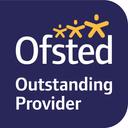Future Leaders Pathway
Programme Delivery

Level 2 Functional Skills in Maths and English (if no prior exemptions)
Full paediatric first aid (PFA) or an emergency PFA certificate
Behaviours:
Confident to have difficult conversations
Child-centred and empathetic, valuing equality, diversity, and inclusion and the uniqueness of each child
Vigilant and act with professional curiosity
Caring, compassionate and sensitive
Honest, open, respectful, and a role model
Self-motivated, using initiative and proactive
Playful and creative
Reflective and reflexive and committed to CPD
Understand health, safety and safeguarding legislation
Understand policies and procedures
Understand own roles and responsibilities
Understand the importance of partnership working
Understand how to manage risks

Thisprogrammeisdeliveredusingablendedlearningapproach, combiningface-to-facetutorialswithremoteworkshops,onlinelearning resourcesandsupportincluding:
Tutorialsandone-to-onementoring E-portfolioande-learning

Additionallearningandtrainingarrangedbythelearnersemployer, thismayincludejobshadowing/inhousetrainingprogrammes relevanttothecourseanddedicatedtimeinthedaytostudy,ofat least6hoursperweek
2-hourone-to-onevisitsevery4to6weekswithadedicatedtutor andformalquarterlyprogressreviewswiththemanagerandtutor
The Apprenticeship Journey
The level 3 Early Years Educator sets out the knowledge, skills and behaviours that are required to be an effective practitioner The programme has been structured around three themes of learning to support apprentices in developing their knowledge and skills in a logical manner:
Understand how to deal with accidents and emergencies Health, safety and relationships Child development
Understand the role and responsibility of a key person
Understand expected patterns of development
Understand how to support children with additional needs
Understand the observation, assessment and planning cycle
Understand the importance of enabling environments
Inclusion and Professional Development in Early Years
Understand the importance of equality, diversity and inclusion
The legal rights of each individual child according to their current and future needs.
Understand the importance of continuous professional development
The CMI Award in Principles of Management and Leadership
Who is the programme for and what will be involved?
The Early Years Educator Apprenticeship: Future Leaders Pathway is designed for individuals with experience in early years who aspire to leadership roles. During the final theme, apprentices on this pathway will develop a comprehensive understanding of management and leadership principles, and how to apply them effectively within an early years setting. This will not only prepare them to achieve their Level 3 Early Years Educator qualification but also equip them with the additional skills and knowledge needed to progress their career and take on future leadership responsibilities
Each apprentice will be assigned a dedicated tutor who will provide ongoing help and support throughout the programme. Learning will be delivered through a blended approach, combining on-the-job experience with structured off-the-job training to ensure apprentices develop the full range of skills required for their role
With guidance from their tutor where needed, apprentices will complete a series of online learning modules designed to build their underpinning knowledge of the Early Years sector and effective ways to support children’s development. The knowledge gained from each themed topic will be formally assessed through End-Point Assessment (EPA) tasks.
To support their success, apprentices must have a minimum of six hours of protected study time allocated each week

In addition to developing the knowledge, skills and behaviours needed to be a successful Early Years Educator, apprentices will, if 19 or over at the start of their apprenticeship, have the option of working towards Level 2 Functional Skills qualifications in English and Maths. Functional Skills are mandatory for apprentices aged 16-18 unless they have GCSE equivalents at grades 9-4 or A*-C in these subjects.
Apprentices will develop competence and confidence at work with a range of resources designed to allow access to online learning, videos and more
End Point Assessment (EPA)
This programme is formally assessed by an independent end point assessor using two methods:
Professional Discussion underpinned by a portfolio of evidence
Observation and Q&A
During the apprenticeship, the learner will generate evidence of the knowledge, skills and behaviours gained which will be uploaded to an e-Portfolio through our Aptem system. The independent assessor will review the portfolio prior to the assessment and use a 90 minute professional discussion to assess the learner's competence and understanding. Learnersarerequiredtobeobservedfor50-minutestodemonstratetheknowledge,skillsandbehaviourstheyhavegainedduring theirapprenticeship.Followingtheobservation,thelearnerwilltakepartina30-minutequestioningtoallowtheendpointassessor toclarifytheirperformanceandtocoveranyaspectsthatwerenotobserved.
